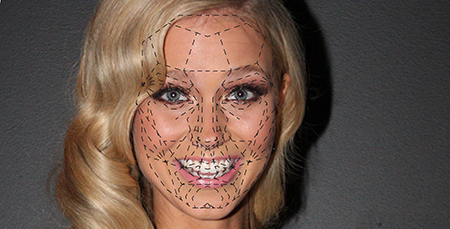Collisions in Conceptions of Beauty
"Belle! C'est un mot qu'on dirait inventé pour elle
Quand elle danse et qu'elle met son corps à jour, tel
Un oiseau qui étend ses ailes pour s'envoler
- from the song « Belle » in the musical The Hunchback of Notre Dame
I became interested in the concept of beauty after having listened to the song – ‘Belle’ – in seven different languages. Not only was I thunderstruck by the variety of sublime lyrics, but I also noticed significant differences in the stage design for The Hunchback of Notre Dame when presented in German or Russian in contrast to the rather similar English, French and Spanish versions. In the face of these various cultural interpretations, I wondered, is there an aspect of beauty that transcends these differences, that touches and even overpowers everybody’s mind and inspires desire and action in similar ways?
In his Critique of Judgment, Immanuel Kant wrote that “beauty has no purpose beyond the pleasure it generates,” but I would respectfully disagree. First, beauty inspires action. For instance, most people consciously search for ways to create, express and, sometimes, possess beauty. In some cases, they may be commercially motivated, trying to profit from our need for beauty. Clinics that offer Botox injections and plastic surgery such as face lifts are not only abundantly present and accepted in our lives but also make a lot of money.
As well, beauty often propels us to define it, to impose on it stereotypical rules and ideas that defy evidence and logic. For example, Hollywood movies have created a ‘pretty woman’ style which clashes with a healthy lifestyle, in the sense that no one who doesn’t over-exercise and under-eat could look like that. No one, especially a young woman, wants to be overweight, but the fat tissue is not only an energy store, temperature insulator or shock absorber; it also plays a key role in the reproductive process. We need it. Ironically, curvaceous women were once defined as the epitome of beauty.

There is perhaps no place where beauty’s effects reverberate more than in human relationships. Beauty is a dominant factor in the choice of partner, capable of overpowering boundaries of social status, education or religion. Therefore, beauty can shape and redefine human relations as well as influence the construction of societies.
Mark Twain wrote “ I do not love her because she is beautiful; she is beautiful because I love her.” However, beauty also possesses the power to enslave the human personality. As Tom Jones sings, “I was like a slave that no man could free.”
Beauty is a potent force because it emotionally affects us and inspires action. Beauty can be used as a myth created for commercial purposes, competitive advantages and social dominance. Sexual selection is often based on beauty, leading to further beauty in the next generation. We find truth in beauty, as Keats wrote: « Beauty is truth, truth beauty—that is all/ we know on earth, and all we need to know.” Indeed, we can be willing to die for beauty. No quality that has no purpose beyond pleasure could be so potent in our lives.

Comments
No comments posted yet.
You have to be registered and logged in in order to post comments!